Bonded by organic living
The lake from which Lyambezi Foods derived its name is a source of life and connected to her and her family's passion for crop farming.
Henriette Lamprecht – She hails from the mighty Zambezi region and a village called Malundu on the M125 road and growing up, she always knew that for one to eat, you must grow it yourself. Both Agnes Limbo’s parents and grandparents taught her the value of sustainable farming for one's own consumption, with a love for farming visible everywhere she went.
After her return from exile in 1990, Agnes got stationed in Otjiwarongo. She started a home garden as she could not find staple foods such as spinach and kale. The garden expanded when her mother insisted she adds a chicken coop so that they could eat organic 'homegrown' chicken.
Her love for being able to produce her own food continued when she moved to Windhoek in 1996 and bought her first house. Here, she planted many fruit trees, including the indigenous mango tree that still bares fruits today.
Agnes moved back to Katima Mulilo in 2001 as the town council’s first female town clerk. Her father convinced her to focus on farming, which lead to her purchasing her first tractor and buying her first herd of Boer goats.
This venture was so successful, that her goats won a couple of prizes at the Zambezi Regional Trade Fair.
Even though she has been practicing small-scale farming all her life, the drive to start gardening professionally started in 2006 after her term on the council was over and she had time on her hands.
After her youngest daughter started her vegan journey, finding food items for her proved to be challenging as they were limited and expensive. Agnes started growing various crops for her consumption. After she developed high blood pressure, she adopted a dietary lifestyle change focused on organic produce.
She started off by planting veggies such as spinach, cabbage, sweet potatoes, onions, and tomatoes, while also planting fruit trees like mangoes, guavas, and lemons. Additionally, due to the experience of having to manage her high blood pressure and the increase of non-communicable diseases like diabetes and cancer among family members and friends, Agnes also introduced plants and herbs such as moringa, baobab, fennel, oregano, thyme, and rosemary - as these are considered superfoods.
She started her own garden on a village plot her father availed to her, using manure from her own kraal to keep the soil healthy.
“I started my own composting pit and went through many trials and errors until I found a working model. This led to my garden producing good yield and I started selling to locals as news spread through word of mouth.”
Over time, she has tried various crops and found a few that she has mastered and are in line with her family’s organic lifestyle habits. Currently, they are cultivating fruits, herbs, and vegetables including papaya, gooseberries, fennel, lemongrass, beetroots, and chillies.
“Though we have a variety of crops, our main crops are sweet potatoes, strawberries, papayas, bell peppers, and gooseberries.”
Lyambezi Foods’ main customers are locals, with a few clients also based in Windhoek and the North. Social media platforms like their Facebook page are used to promote seasonal produce in stock.
Agnes believes with an increase in lifestyle-related diseases such as diabetes, Namibians are starting to grow more conscious of their eating habits.
“In the Zambezi region, we originally consumed fish, home-raised chicken, and lots of vegetables. Over time many people have abandoned this habit and started indulging in processed foods.
“Organic, vegan, and gluten-free produce has, however, increased in shops, and one can then assume Namibians are starting to become mindful about their eating habits, especially since we are a meat-eating country.”
Meat is not the problem, says Agnes, it’s the quantity consumed and how we prepare it.
“Learning to eat a balanced diet with greens can also help someone who doesn’t necessarily want to become vegetarian or vegan.”
She faced many obstacles on her farming journey, says Agnes, admitting the sector requires hard labour and access to funds.
“I have had many failures simply because I relied on individuals to run my farm and I had little knowledge of what to do myself. One has to be actively involved and do the hard labour yourself to ensure sustainability and quality is maintained.”
Up until now, Agnes has been self-funding, with attempts to obtain loans being unsuccessful due to various issues such as her age and lack of collateral.
As farming is limited in her village, which is inhabited by her family members, room for expansion is limited. She obtained land in Liselo but says the plot has been financially challenging to prepare, as the soil is sandier and requires de-bushing. Agnes used her pension money to erect a greenhouse and borehole. However, due to limited supervision as she was still residing in Windhoek, the people entrusted to erect the facilities took shortcuts, and a lot of money was wasted as the infrastructures will need to be renovated to meet standards.
The main lesson she learned on her journey thus far is to remember what motivates her, says Agnes.
“Lyambezi Foods may provide me with money, but I am motivated by my passion for farming and living a healthy lifestyle. This keeps me focused on improving my produce as it means I am not only helping myself, but others as well.”
Also, invest in yourself and those who are part of your journey. She has now made it a point to get involved, read up, and attend workshops with other farmers so she can learn and be able to guide her assistants.
Her daughters, son-in-law, and grandchildren have also become actively involved through conducting research on planting methods, packaging, and marketing.
The name Lyambezi was chosen as a celebration and representation of the Zambezi region and home to the mighty Zambezi river, explains Agnes.
“The Lyambezi lake is situated behind our village and would receive water when floods came. It was critical to our livelihood as we would catch fish, grow water-loving crops and obtain water from there.
“It’s a source of life that is connected to our love for crop farming. Since I am blessed to be on this farming journey with my children, Lyambezi Foods represents a family united in healthy organic living.”
Future plans include expanding their strawberry, gooseberry, and bell pepper crops to the Liselo Plot and securing eco-friendly packaging for their produce. Also, adding more value by producing organic jams and pickled products from their produce.
“My children and I love to learn - our future plans are to gain professional skills and knowledge in the horticultural and animal husbandry sectors.”
Trial and error is part of learning, but the best reward is being self-sustainable, says Agnes.
“You gain control over your quality of life as you eat what you know you produced, you save money and improve family bonding at the same time.
“Additionally, gardening is a form of therapy and critical for individuals experiencing high stress levels that can lead to mental illness.”
Agnes also encourages school gardens as it helps instilling responsibility and teaching survival habits.
“Encourage your young ones to get involved and take control of what they eat.” - [email protected], Facebook – Lyambezi Foods
*AGRICULTURE
*SELF-SUSTAINABILITY
After her return from exile in 1990, Agnes got stationed in Otjiwarongo. She started a home garden as she could not find staple foods such as spinach and kale. The garden expanded when her mother insisted she adds a chicken coop so that they could eat organic 'homegrown' chicken.
Her love for being able to produce her own food continued when she moved to Windhoek in 1996 and bought her first house. Here, she planted many fruit trees, including the indigenous mango tree that still bares fruits today.
Agnes moved back to Katima Mulilo in 2001 as the town council’s first female town clerk. Her father convinced her to focus on farming, which lead to her purchasing her first tractor and buying her first herd of Boer goats.
This venture was so successful, that her goats won a couple of prizes at the Zambezi Regional Trade Fair.
Even though she has been practicing small-scale farming all her life, the drive to start gardening professionally started in 2006 after her term on the council was over and she had time on her hands.
After her youngest daughter started her vegan journey, finding food items for her proved to be challenging as they were limited and expensive. Agnes started growing various crops for her consumption. After she developed high blood pressure, she adopted a dietary lifestyle change focused on organic produce.
She started off by planting veggies such as spinach, cabbage, sweet potatoes, onions, and tomatoes, while also planting fruit trees like mangoes, guavas, and lemons. Additionally, due to the experience of having to manage her high blood pressure and the increase of non-communicable diseases like diabetes and cancer among family members and friends, Agnes also introduced plants and herbs such as moringa, baobab, fennel, oregano, thyme, and rosemary - as these are considered superfoods.
She started her own garden on a village plot her father availed to her, using manure from her own kraal to keep the soil healthy.
“I started my own composting pit and went through many trials and errors until I found a working model. This led to my garden producing good yield and I started selling to locals as news spread through word of mouth.”
Over time, she has tried various crops and found a few that she has mastered and are in line with her family’s organic lifestyle habits. Currently, they are cultivating fruits, herbs, and vegetables including papaya, gooseberries, fennel, lemongrass, beetroots, and chillies.
“Though we have a variety of crops, our main crops are sweet potatoes, strawberries, papayas, bell peppers, and gooseberries.”
Lyambezi Foods’ main customers are locals, with a few clients also based in Windhoek and the North. Social media platforms like their Facebook page are used to promote seasonal produce in stock.
Agnes believes with an increase in lifestyle-related diseases such as diabetes, Namibians are starting to grow more conscious of their eating habits.
“In the Zambezi region, we originally consumed fish, home-raised chicken, and lots of vegetables. Over time many people have abandoned this habit and started indulging in processed foods.
“Organic, vegan, and gluten-free produce has, however, increased in shops, and one can then assume Namibians are starting to become mindful about their eating habits, especially since we are a meat-eating country.”
Meat is not the problem, says Agnes, it’s the quantity consumed and how we prepare it.
“Learning to eat a balanced diet with greens can also help someone who doesn’t necessarily want to become vegetarian or vegan.”
She faced many obstacles on her farming journey, says Agnes, admitting the sector requires hard labour and access to funds.
“I have had many failures simply because I relied on individuals to run my farm and I had little knowledge of what to do myself. One has to be actively involved and do the hard labour yourself to ensure sustainability and quality is maintained.”
Up until now, Agnes has been self-funding, with attempts to obtain loans being unsuccessful due to various issues such as her age and lack of collateral.
As farming is limited in her village, which is inhabited by her family members, room for expansion is limited. She obtained land in Liselo but says the plot has been financially challenging to prepare, as the soil is sandier and requires de-bushing. Agnes used her pension money to erect a greenhouse and borehole. However, due to limited supervision as she was still residing in Windhoek, the people entrusted to erect the facilities took shortcuts, and a lot of money was wasted as the infrastructures will need to be renovated to meet standards.
The main lesson she learned on her journey thus far is to remember what motivates her, says Agnes.
“Lyambezi Foods may provide me with money, but I am motivated by my passion for farming and living a healthy lifestyle. This keeps me focused on improving my produce as it means I am not only helping myself, but others as well.”
Also, invest in yourself and those who are part of your journey. She has now made it a point to get involved, read up, and attend workshops with other farmers so she can learn and be able to guide her assistants.
Her daughters, son-in-law, and grandchildren have also become actively involved through conducting research on planting methods, packaging, and marketing.
The name Lyambezi was chosen as a celebration and representation of the Zambezi region and home to the mighty Zambezi river, explains Agnes.
“The Lyambezi lake is situated behind our village and would receive water when floods came. It was critical to our livelihood as we would catch fish, grow water-loving crops and obtain water from there.
“It’s a source of life that is connected to our love for crop farming. Since I am blessed to be on this farming journey with my children, Lyambezi Foods represents a family united in healthy organic living.”
Future plans include expanding their strawberry, gooseberry, and bell pepper crops to the Liselo Plot and securing eco-friendly packaging for their produce. Also, adding more value by producing organic jams and pickled products from their produce.
“My children and I love to learn - our future plans are to gain professional skills and knowledge in the horticultural and animal husbandry sectors.”
Trial and error is part of learning, but the best reward is being self-sustainable, says Agnes.
“You gain control over your quality of life as you eat what you know you produced, you save money and improve family bonding at the same time.
“Additionally, gardening is a form of therapy and critical for individuals experiencing high stress levels that can lead to mental illness.”
Agnes also encourages school gardens as it helps instilling responsibility and teaching survival habits.
“Encourage your young ones to get involved and take control of what they eat.” - [email protected], Facebook – Lyambezi Foods
*AGRICULTURE
*SELF-SUSTAINABILITY


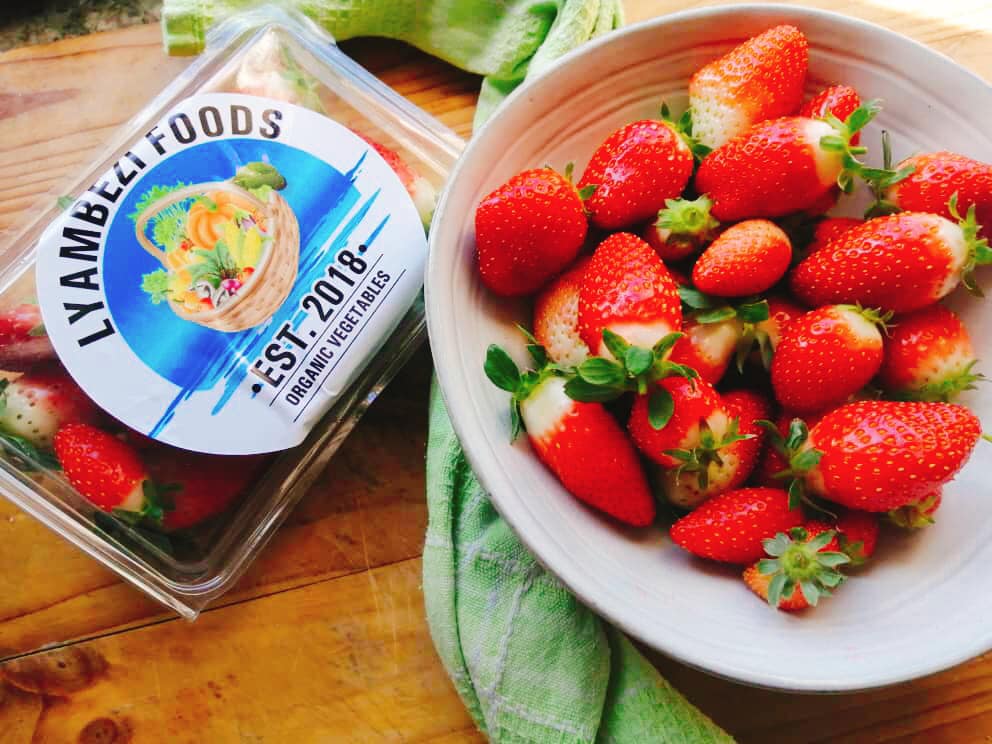
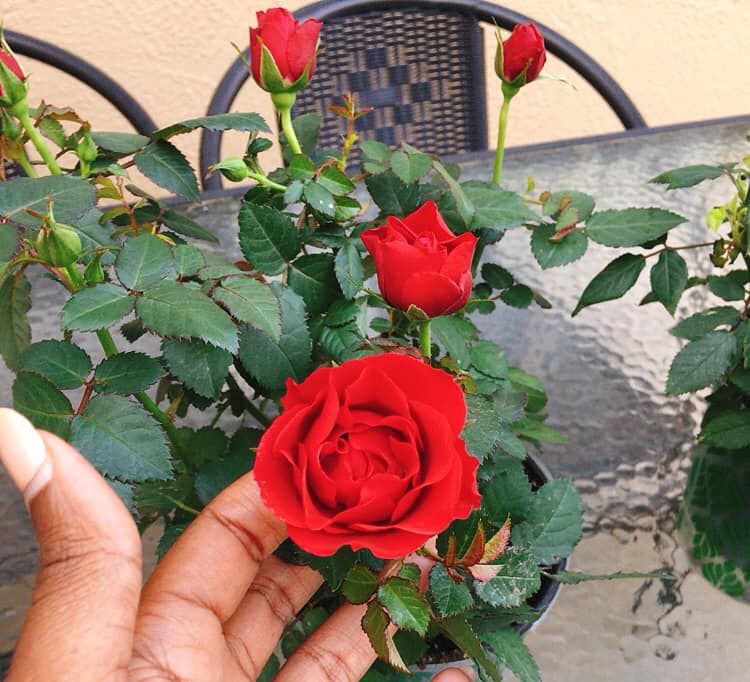
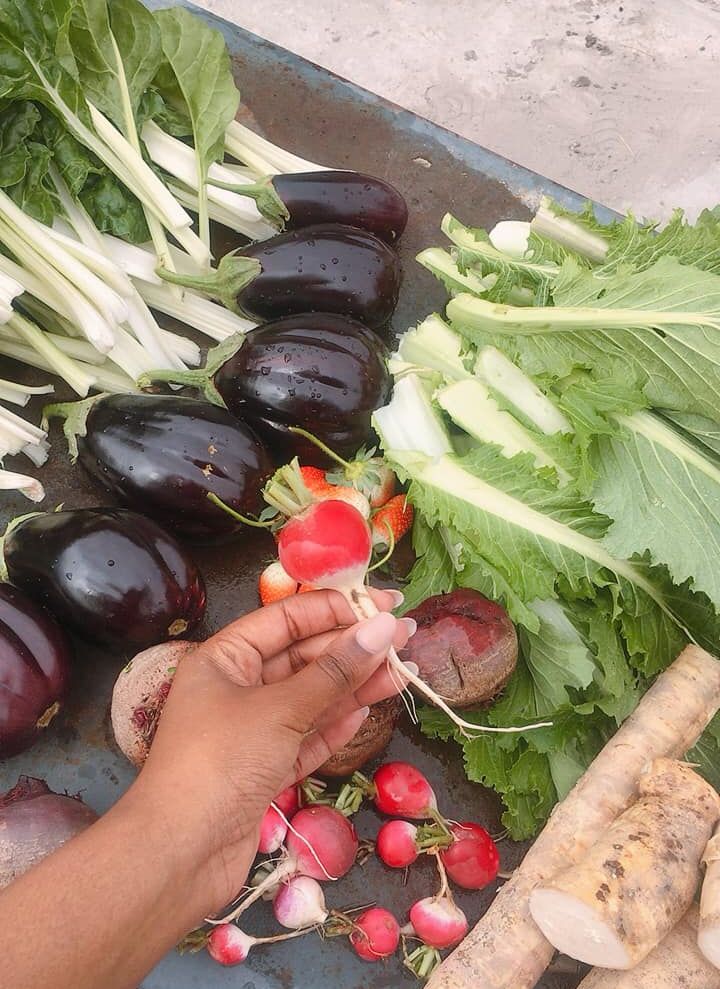
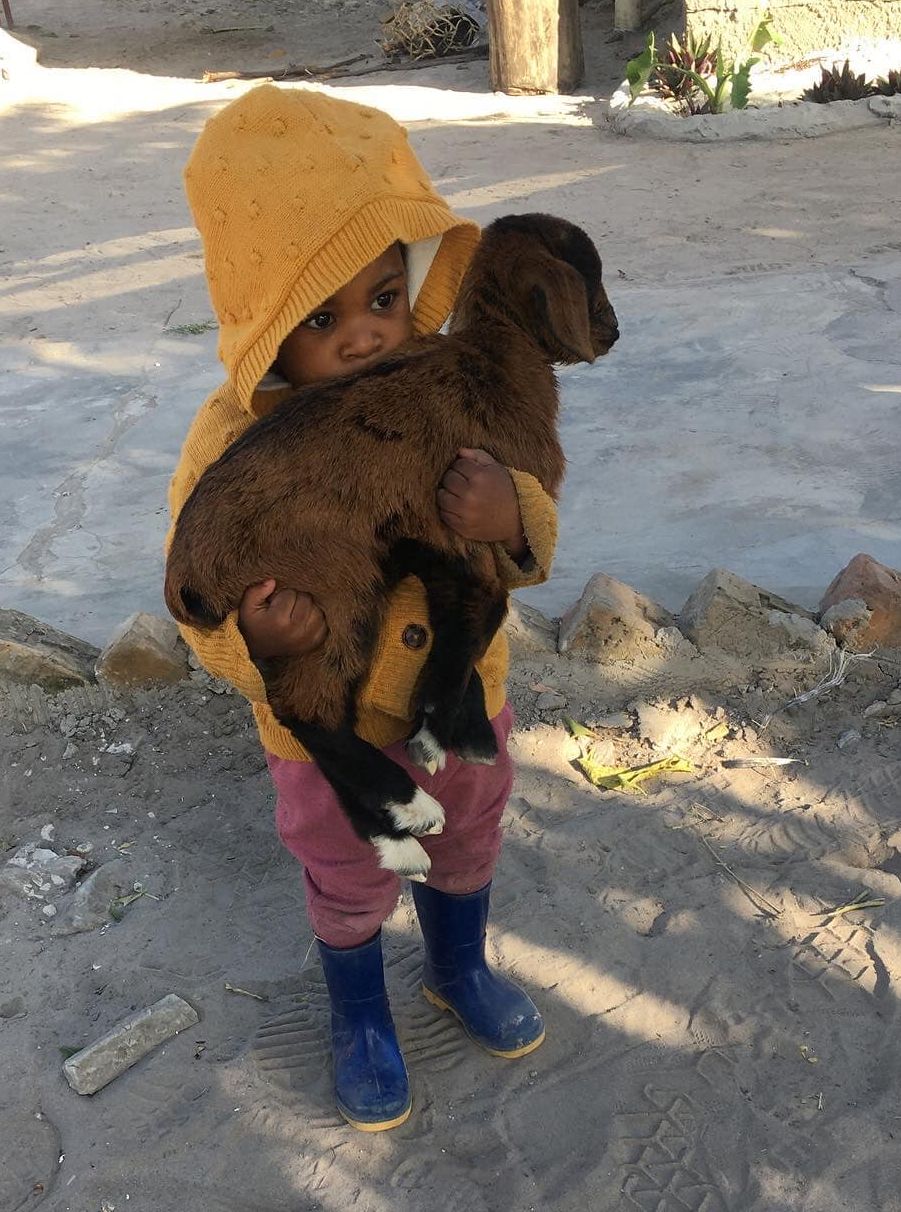
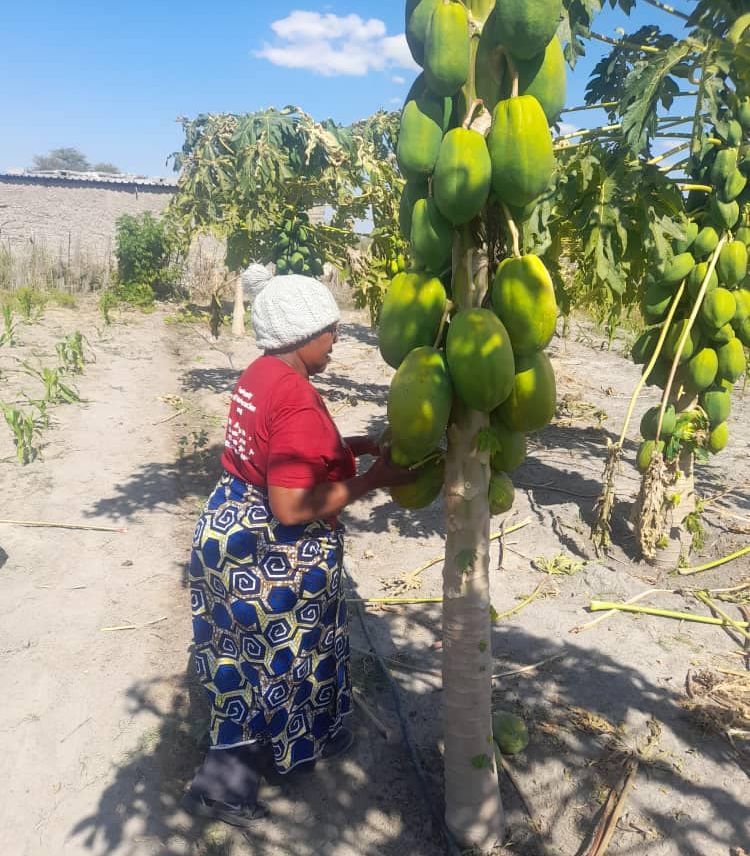
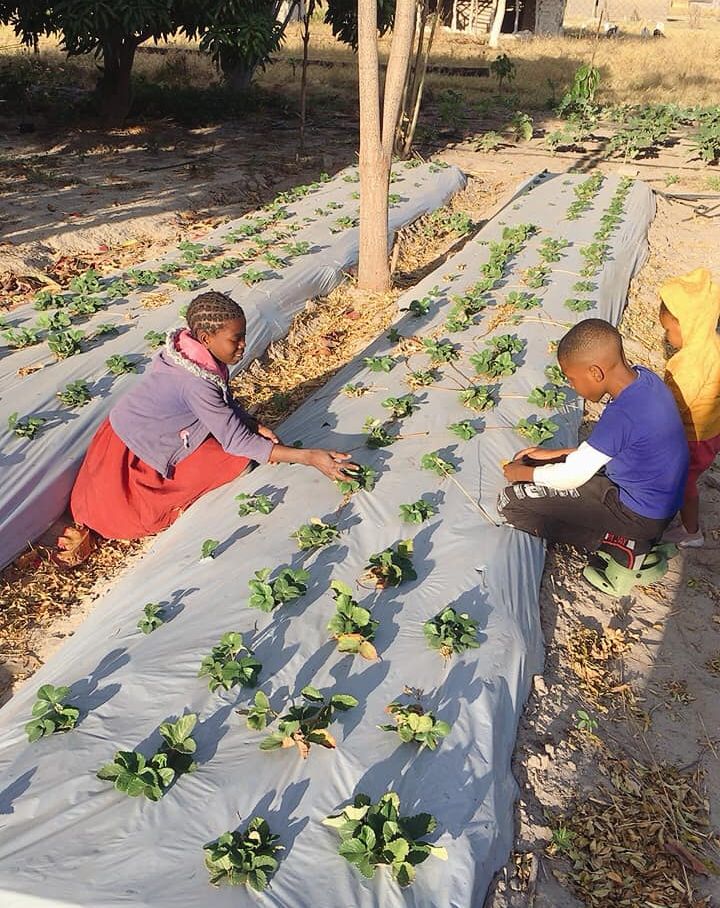
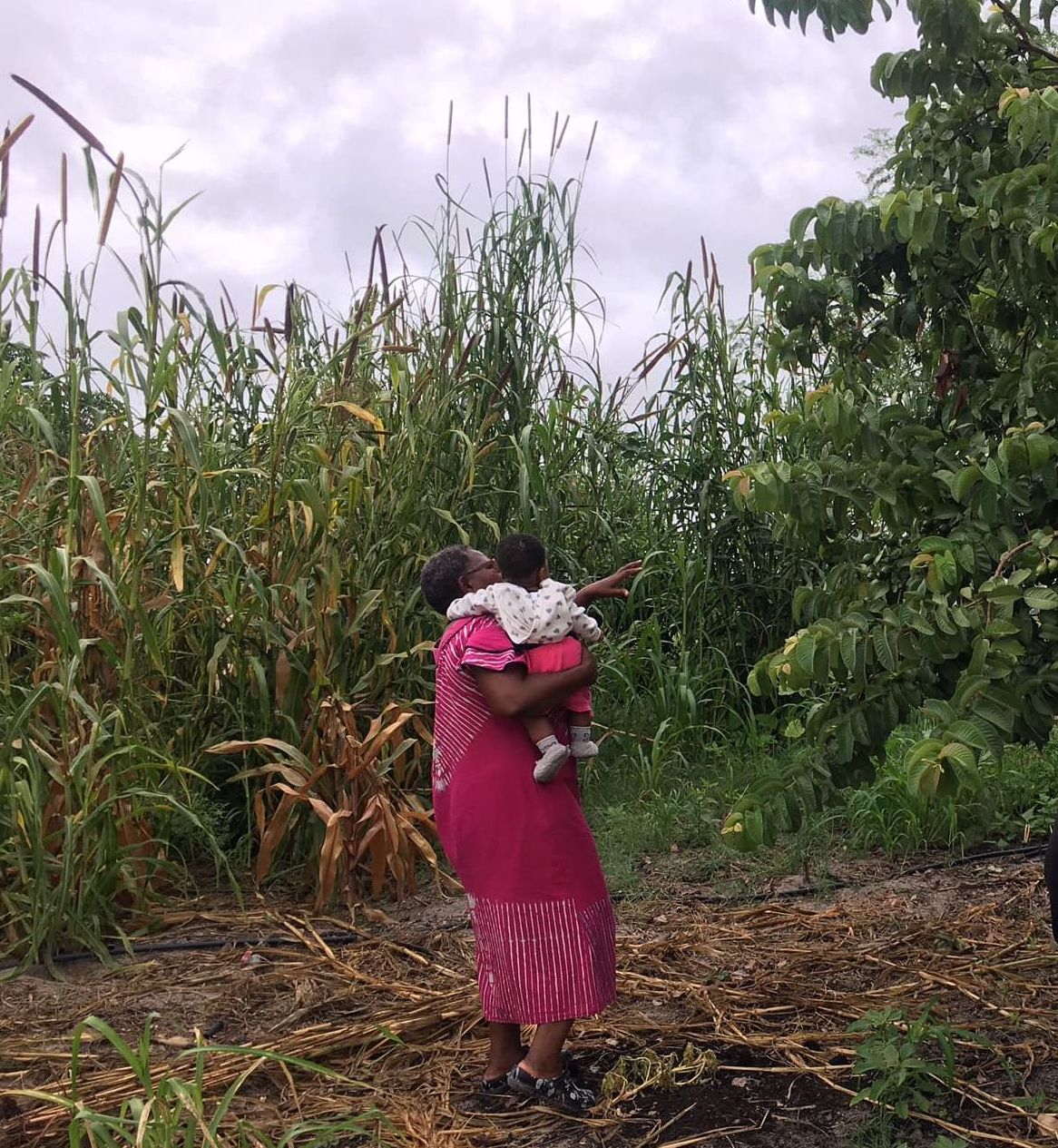

Kommentaar
Republikein
Geen kommentaar is op hierdie artikel gelaat nie